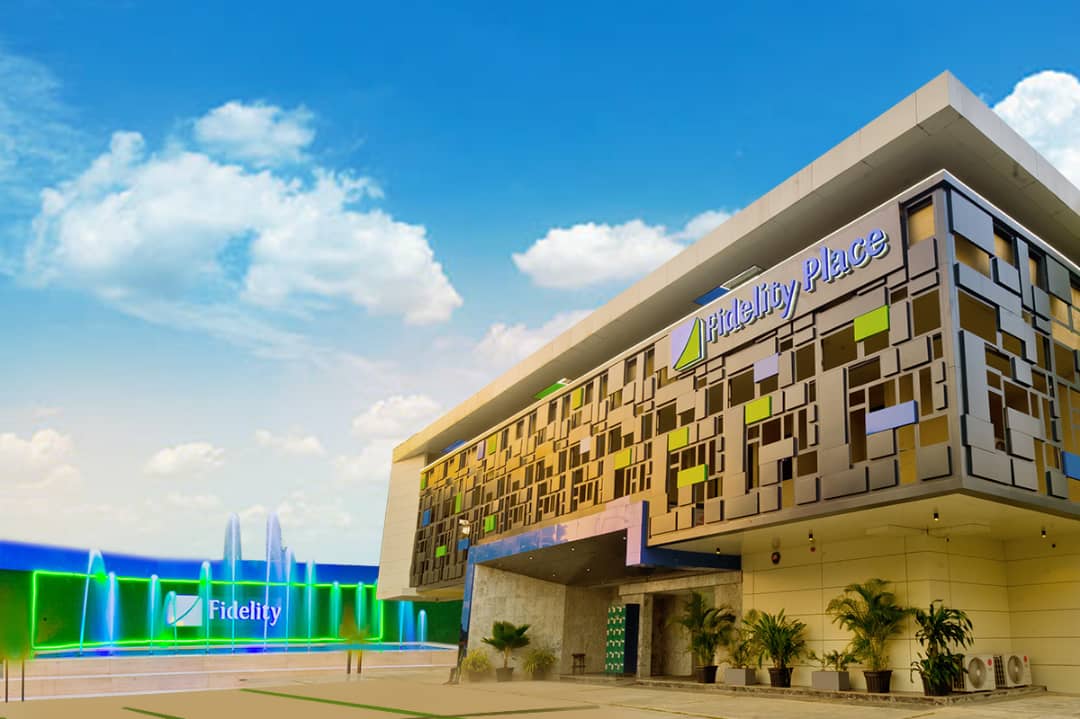Business
Fidelity, Zenith, UBA make list of most Capitalized Banks in Q3 2023

Fidelity, Zenith, UBA make list of most Capitalized Banks in Q3 2023
Leading financial institution, Fidelity Bank, has been listed as one of most capitalized banks in Nigeria based on Q3 2023 financial results.
According to an article published in Thisday newspapers, the bank reported a capital base of N410.75 billion as of September 2023 against N314.3 billion in 2022. Also featuring on the list are Zenith Bank, UBA, First Bank, Access Holdings, First Bank Holdings, Ecobank, GTCO Holdings, Stanbic IBTC Holdings, FCMB and Sterling Financial Holdings.
Following the announcement of the planned recapitalisation of commercial banks by the Central Bank Governor, Dr. Olayemi Cardoso, at the 58th Annual Dinner of the Chartered Institute of Bankers of Nigeria on 24 November 2023, industry watchers have anticipated the announcement of capital raising exercises by banks.
Incidentally, Fidelity Bank had taken the proactive approach by securing shareholders’ nod to raise additional capital earlier in the year. At an Extra-Ordinary General Meeting (EGM) held virtually on Friday, 11 August 2023, the bank’s shareholders unanimously approved a capital raising exercise via a Public Offer for up to 10 billion Ordinary Shares and Rights Issue of up to 3.2 billion Ordinary Shares representing one new share for every 10 shares held to new and existing shareholders respectively.
Below is the list of the 10 most capitalised banks as of September 2023:
• Zenith Bank – N1.92 trillion
The third quarter 2023 financial report of Zenith Bank Plc places the bank at the topmost position in terms of shareholders fund which it put at approximately N1.92trillion, as against N1.31trillion in 2022. The bank also ranks as Nigeria’s highest profit generator so far in 2023, with a pre-tax profit of N505 billion.
This eminent position was corroborated by Nairametrics, an online platform that noted that with a capital adequacy ratio (CAR) of 20.1 per cent as of September 2023, as against 19.8 per cent as of December 2022, the bank’s stability is not in question.
• UBA -N1.778trillion
Following Zenith Bank closely is United Bank for Africa, Nigeria’s second-highest profit generator this year, which is also the second most capitalised bank as of September 2023. The bank posted a total shareholders fund of N1.778 trillion as of Q3, 2023. In 2022, the figure was N922.1 billion, with a capital adequacy ratio of 28.3 per cent, which suggests stable financial health at the end of FY 202
• Access Holdings – N1.64 trillion
Access Holdings is another Tier 1 capital bank with a total equity of N1.64 trillion as opposed to N1.231 trillion in 2022. With this figure, Access Holdings ranks as Nigeria’s third-largest bank in terms of capital base. Its Nigerian subsidiary, Access Bank Nigeria has a total equity of N1.208 trillion as of September 2023, which is a stable figure in case of any recapitalisation exercise.
•First Bank Holdings – N1.37trillion
The ranking in terms of capital base listed FirstBank as the fourth on the list. The Third Quarter 2023 results of First Bank Holdings released in September 2023 showed that the parent company of First Bank Limited has a total equity of N1.37 trillion. However, its commercial banking arm, First Bank Limited has a capital base of N1.287 trillion. In 2022, the holding company posted a capital of 995.7billion.
•Ecobank- N1.37trillion
The bank’s third quarter 2023 performance result submitted to the Exchange last week showed it recorded a shareholders fund of N1.373 trillion as against N935 billion in the same period of 2022, placing it at the fifth position of the most capitalised banks.
• GTCO Holdings – N1.27trillion
GTCO Holdings, the parent group of GTBank has a total equity of N1.273 trillion, a year-to-date increase of 36.7per cent from the N931 billion recorded at the start of 2023.
While GTCO’s total equity is put at N1.27 billion, this is cumulative of all the group’s subsidiaries. However, its Nigerian subsidiary, GT Bank Nigeria holds a total capital base of N1 trillion as of September 2023 which is still a substantial figure ahead of any recapitalisation exercise.
•Stanbic IBTC Holdings – N471billion
Stanbic IBTC Holdings, the Nigerian subsidiary of Standard Bank Group is the parent of Stanbic IBTC Bank and it has a capital base of N471 billion as of September 2023. Its capital was N407.7 billion in 2022.
• Fidelity Bank Plc – N411 billion
With a capital base of N410.75 billion as of September 2023 against N314.3 billion in 2022, Fidelity Bank sits in quite a comfortable place ahead of any recapitalisation exercise for Nigerian banks.
In September 2023, the bank made a foray into international banking by acquiring the UK division of Union Bank of Nigeria.
• FCMB -N373.7billion
With a capital base of N373.7 billion as of September 2023 as against N275.8 billion in 2022, FCMB ranks as the 9th most capitalised bank in Nigeria. With a capital adequacy ratio of 16.0per cent as of December 31, 2022, FCMB’s CAR was just a little above the regulatory 15% required by the CBN.
• Sterling Financial Holdings – N165.84billion
Sterling Bank Limited is a full-service national commercial bank licensed by the Central Bank of Nigeria, and it’s a subsidiary of Sterling Financial Holdings Plc. The bank provides financial services to individuals, small businesses, and large corporations.
Sterling Bank’s capital base stood at N165.84 billion when total liabilities of N2.08 trillion were removed from total assets of N2.25 trillion. Its capital in 2022 was N154 billion.
Business
Nigeria’s Inflation Drops to 15.10% as NBS Reports Deflationary Trend

Nigeria’s headline inflation rate declined to 15.10 per cent in January 2026, marking a significant drop from 27.61 per cent recorded in January 2025, according to the latest Consumer Price Index (CPI) report released by the National Bureau of Statistics.
The report also showed that month-on-month inflation recorded a deflationary trend of –2.88 per cent, representing a 3.42 percentage-point decrease compared to December 2025. Analysts say the development signals easing price pressures across key sectors of the economy.
Food inflation stood at 8.89 per cent year-on-year, down from 29.63 per cent in January 2025. On a month-on-month basis, food prices declined by 6.02 per cent, reflecting lower costs in several staple commodities.
The data suggests a sustained downward trajectory in inflation over the past 12 months, pointing to improving macroeconomic stability.
The administration of President Bola Ahmed Tinubu has consistently attributed recent economic adjustments to ongoing fiscal and monetary reforms aimed at stabilising prices, boosting agricultural output, and strengthening domestic supply chains.
Economic analysts note that while the latest figures indicate progress, sustaining the downward trend will depend on continued policy discipline, exchange rate stability, and improvements in food production and distribution.
The January report provides one of the clearest indications yet that inflationary pressures, which surged in early 2025, may be moderating.
Bank
Alpha Morgan to Host 19th Economic Review Webinar

Alpha Morgan to Host 19th Economic Review Webinar
In an economy shaped by constant shifts, the edge often belongs to those with the right information.
On Wednesday, February 25, 2026, Alpha Morgan Bank will host the 19th edition of its Economic Review Webinar, a high-level thought leadership session designed to equip businesses, investors, and individuals with timely financial and economic insight.
The session, which will hold live on Zoom at 10:00am WAT and will feature economist Bismarck Rewane, who will examine the key signals influencing Nigeria’s economic direction in 2026, including policy trends, market movements, and global developments shaping the local landscape.
With a consistent track record of delivering clarity in uncertain times, the Alpha Morgan Economic Review continues to provide practical context for decision-making in a dynamic environment.
Registration for the 19th Alpha Morgan Economic Review is free and can be completed via https://bit.ly/registeramerseries19
It is a bi-monthly platform that is open to the public and is held virtually.
Visit www.alphamorganbank to know more.
Business
GTBank Launches Quick Airtime Loan at 2.95%

GTBank Launches Quick Airtime Loan at 2.95%
Guaranty Trust Bank Ltd (GTBank), the flagship banking franchise of GTCO Plc, Africa’s leading financial services group, today announced the launch of Quick Airtime Loan, an innovative digital solution that gives customers instant access to airtime when they run out of call credit and have limited funds in their bank accounts, ensuring customers can stay connected when it matters most.
In today’s always-on world, running out of airtime is more than a minor inconvenience. It can mean missed opportunities, disrupted plans, and lost connections, often at the very moment when funds are tight, and options are limited. Quick Airtime Loan was created to solve this problem, offering customers instant access to airtime on credit, directly from their bank. With Quick Airtime Loan, eligible GTBank customers can access from ₦100 and up to ₦10,000 by dialing *737*90#. Available across all major mobile networks in Nigeria, the service will soon expand to include data loans, further strengthening its proposition as a reliable on-demand platform.
For years, the airtime credit market has been dominated by Telcos, where charges for this service are at 15%. GTBank is now changing the narrative by offering a customer-centric, bank-led digital alternative priced at 2.95%. Built on transparency, convenience and affordability, Quick Airtime Loan has the potential to broaden access to airtime, deliver meaningful cost savings for millions of Nigerians, and redefine how financial services show up in everyday life, not just in banking moments.
Commenting on the product launch, Miriam Olusanya, Managing Director of Guaranty Trust Bank Ltd, said: “Quick Airtime Loan reflects GTBank’s continued focus on delivering digital solutions that are relevant, accessible, and built around real customer needs. The solution underscores the power of a connected financial ecosystem, combining GTBank’s digital reach and lending expertise with the capabilities of HabariPay to deliver a smooth, end-to-end experience. By leveraging unique strengths across the Group, we are able to accelerate innovation, strengthen execution, and deliver a more integrated customer experience across all our service channels.”
Importantly, Quick Airtime Loan highlights GTCO’s evolution as a fully diversified financial services group. Leveraging HabariPay’s Squad, the solution reinforces the Group’s ecosystem proposition by bringing together banking, payment technology, and digital channels to deliver intuitive, one-stop experiences for customers.
With this new product launch, Guaranty Trust Bank is extending its legacy of pioneering digital-first solutions that have redefined customer access to financial services across the industry, building on the proven strength of its widely adopted QuickCredit offering and the convenience of the Bank’s iconic *737# USSD Banking platform.
About Guaranty Trust Bank
Guaranty Trust Bank (GTBank) is the flagship banking franchise of GTCO Plc, a leading financial services group with a strong presence across Africa and the United Kingdom. The Bank is widely recognized for its leadership in digital banking, customer experience, and innovative financial solutions that deliver value to individuals, businesses, and communities.
About HabariPay
HabariPay is the payments fintech subsidiary of GTCO Plc, focused on enabling fast, secure, and accessible digital payments for individuals and businesses. By integrating payments and digital technology, HabariPay supports innovative services that make everyday financial interactions simpler and more seamless.
Enquiries:
GTCO
Group Corporate Communication
[email protected]
+234-1-2715227
www.gtcoplc.com
-

 celebrity radar - gossips6 months ago
celebrity radar - gossips6 months agoWhy Babangida’s Hilltop Home Became Nigeria’s Political “Mecca”
-

 society6 months ago
society6 months agoPower is a Loan, Not a Possession: The Sacred Duty of Planting People
-

 society5 months ago
society5 months agoReligion: Africa’s Oldest Weapon of Enslavement and the Forgotten Truth
-

 news6 months ago
news6 months agoTHE APPOINTMENT OF WASIU AYINDE BY THE FEDERAL GOVERNMENT AS AN AMBASSADOR SOUNDS EMBARRASSING









